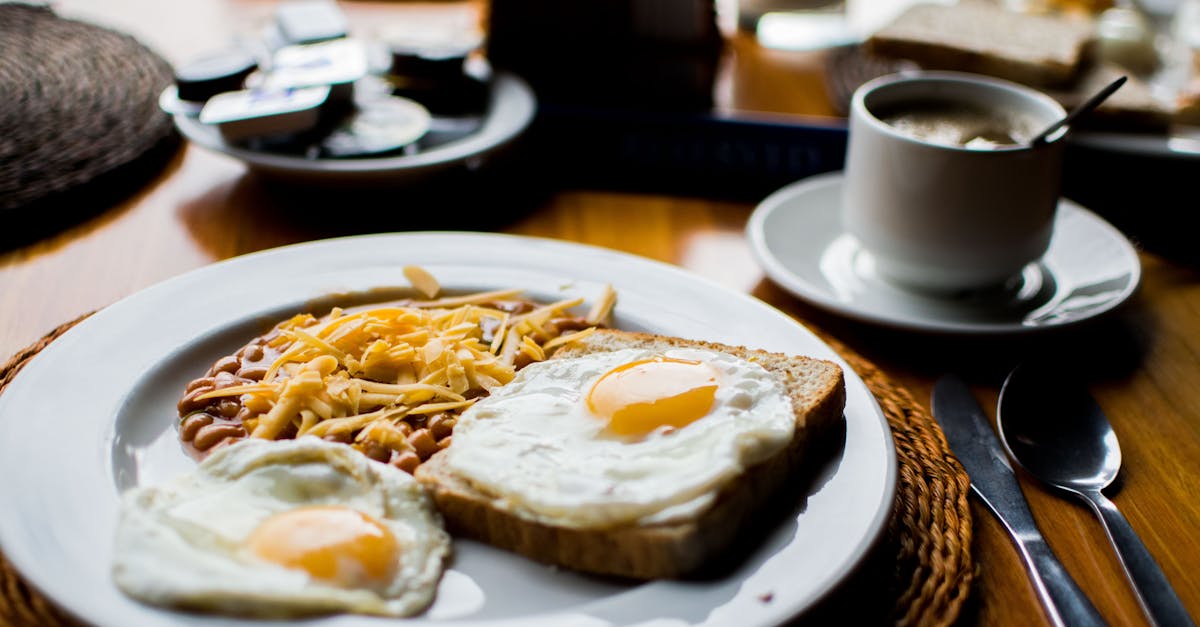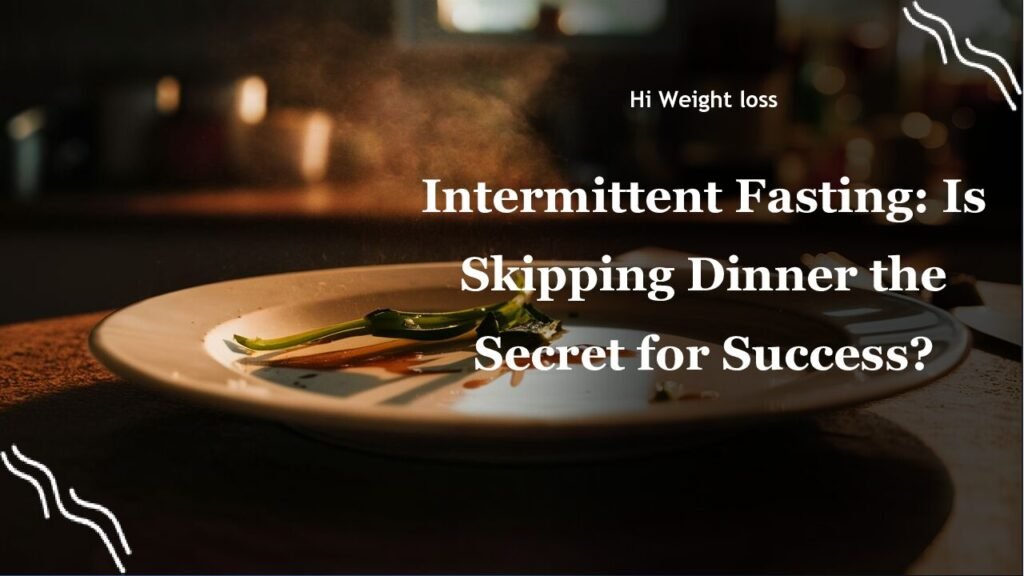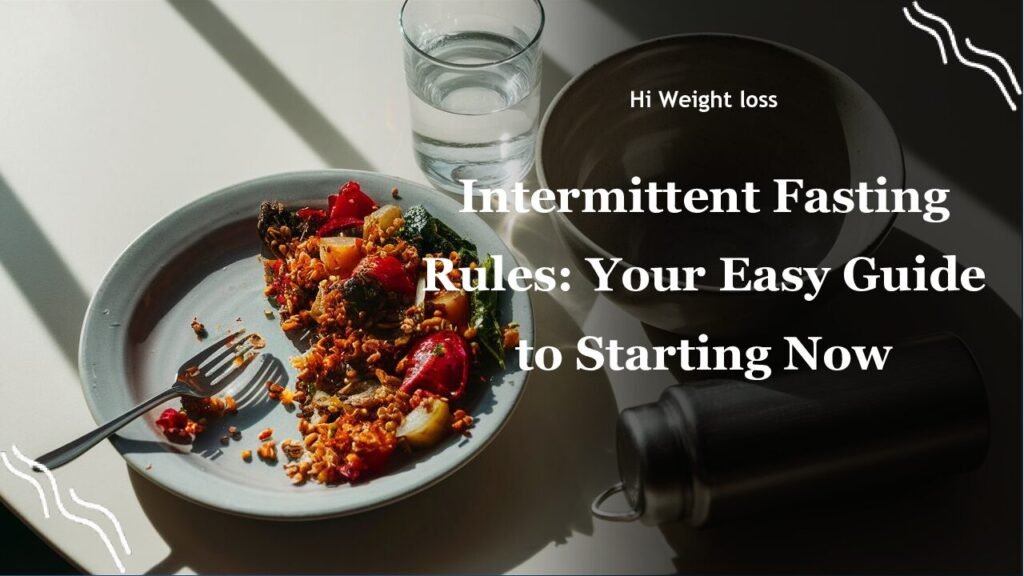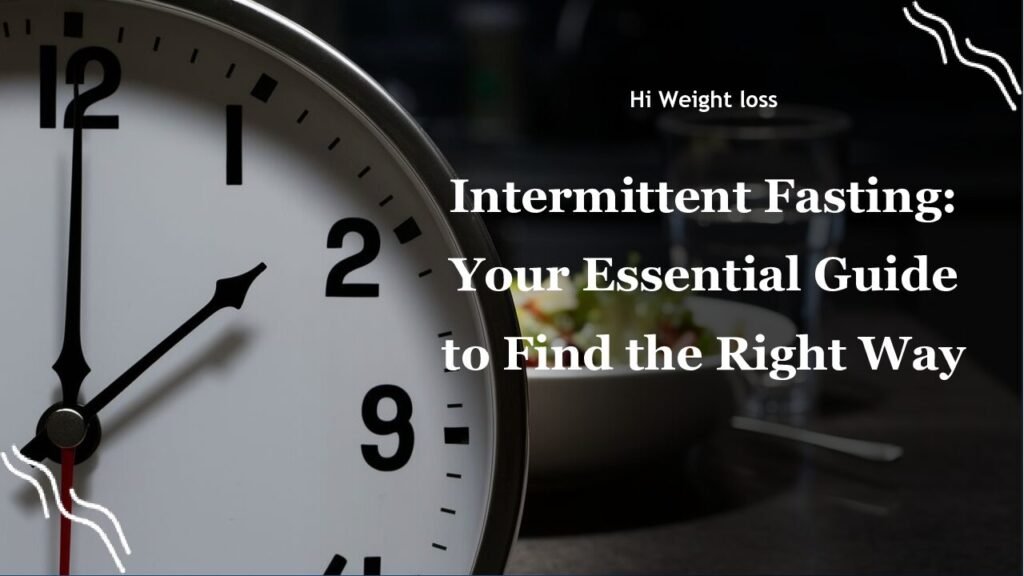“`
Are you trying to figure out the *best meal to skip for intermittent fasting* and feeling a bit overwhelmed by all the conflicting advice? It’s like trying to navigate a maze blindfolded, isn’t it? You might have heard that skipping breakfast is the way to go, but what if there’s a better approach? Well, this article will explore why skipping dinner might be more beneficial for your fasting journey, referencing scientific evidence and my own experiences to guide you to the *best meal to skip for intermittent fasting*.
Which Meal Is Best to Skip for Intermittent Fasting?
Understanding Intermittent Fasting and Its Benefits
Intermittent fasting (IF) isn’t about depriving yourself; it’s about timing your meals strategically. It’s an eating pattern that cycles between periods of eating and voluntary fasting, and it’s gained immense popularity for its potential health benefits. For many, intermittent fasting has become a crucial tool for weight management and improved metabolic health.
When you practice intermittent fasting, your body starts to adapt to using fat as its primary fuel source. It’s a metabolic shift that can lead to significant benefits such as weight loss and better blood sugar control. However, not all intermittent fasting is created equal, and the meal you choose to skip can have a profound impact on your results.
The Case for Skipping Dinner: Why It Often Works Best
When deciding *which meal to skip for 16:8 intermittent fasting* (a popular method), many people default to skipping breakfast. However, scientific evidence often supports the idea of skipping dinner instead. Why might this be the case? Let’s look at the science.
First, think about your caloric intake. Dinner is often the largest meal of the day, filled with comforting and satisfying food. When you skip dinner, you naturally cut more calories from your daily intake compared to skipping breakfast. According to Welltech, skipping dinner leads to a more significant caloric deficit, a key element in weight loss. This makes it a very effective approach. I remember once, I tried skipping breakfast and ended up snacking all morning, making it impossible to stick to the plan.
Secondly, skipping dinner can lead to significant metabolic benefits. Your body enters a state where it starts burning fat more efficiently when fasting for a more extended period, especially at night. This metabolic switch is crucial for both weight loss and managing blood sugar levels, according to studies cited by Hindustan Times. So by skipping dinner you make the most of this. It allows your body to really tap into fat stores while you sleep.
Thirdly, there’s the risk of skipping breakfast. While it’s true that skipping breakfast might lead to fat oxidation, it can also have some negative consequences. For instance, it might increase your appetite and make you feel less satisfied throughout the day. I once tried the “skip breakfast” approach and found myself constantly reaching for snacks mid-morning, which completely sabotaged my efforts. Furthermore, studies have linked skipping breakfast to elevated cholesterol levels and an increased risk of heart disease, as noted by Form Nutrition. This makes breakfast a somewhat risky option to omit.

The Downsides of Skipping Breakfast
Now, let’s delve deeper into why skipping breakfast might not be the best idea. It’s not to say it’s never right for anyone, but for most, skipping dinner seems more effective. Think of breakfast as your fuel for the day. It kickstarts your metabolism and provides the energy you need for all your daily activities. When you skip it, you might experience a dip in energy levels, and that’s never fun. It’s like trying to start a car without putting gas in it first.
One common issue is increased appetite later in the day. When you miss your morning meal, your body might crave more food in the afternoon or evening. This can lead to overeating and making unhealthy food choices, which can completely undermine your intermittent fasting efforts. I’ve seen friends struggle with this, where skipping breakfast leads them to crave sugary snacks and unhealthy fats later on.
Also, we can’t ignore the potential long-term health risks. Studies have linked skipping breakfast to an increased risk of heart disease and elevated cholesterol levels, which are serious concerns. It’s important to remember that intermittent fasting should improve, not worsen, your health. So when asking *which meal is best to skip for intermittent fasting*, the answer very well may be dinner instead of breakfast.
Is Skipping Dinner Right for You?
While the evidence tends to favor skipping dinner, it’s important to consider your unique circumstances. What works for one person might not work for another. For example, your lifestyle, activity level, and personal preferences can play a big role in determining the *best meal to skip for intermittent fasting beginners*.
If you’re someone who has a demanding physical job or prefers to work out in the morning, you might find that skipping breakfast is too difficult for you. Similarly, if you tend to eat late dinners, then adjusting to a dinner skip might be more difficult, although still possible. It’s all about finding what feels most sustainable. When I first started intermittent fasting, I experimented with both methods and ultimately found that skipping dinner fit better with my schedule and helped me avoid those late-night cravings.
Listen to your body, and don’t be afraid to make adjustments along the way. Intermittent fasting is not a rigid structure and flexibility is key to success. Think of it as a journey rather than a race. The goal is to find a sustainable, healthy eating pattern that fits into your lifestyle, not the other way around.
Tips for Skipping Dinner Successfully
If you’ve decided that skipping dinner is the right choice for you, here are some tips to help you succeed:
- **Plan your meals**: Make sure you’re getting all your necessary nutrients during your eating window. This will help you avoid any nutritional deficiencies.
- **Stay hydrated**: Drink plenty of water during your fasting hours to curb any hunger pangs.
- **Start slowly**: Gradually adjust to skipping dinner, rather than going cold turkey.
- **Listen to your body**: Pay attention to how your body is reacting and make changes accordingly.
- **Focus on your health**: Remember your goals and stay motivated.
When I first started skipping dinner, it felt like I was constantly hungry. But with time and some adjustments, I found what worked for me. The key is to have a plan, and gradually shift towards it. And you will find that it’s totally possible, and may even be preferable for you!
Comparing Skipping Breakfast vs. Skipping Dinner
To make this a little clearer, let’s take a look at a table comparing the pros and cons of skipping breakfast versus skipping dinner:
| Feature | Skipping Breakfast | Skipping Dinner |
|---|---|---|
| Caloric Reduction | Lower, often smaller meal skipped | Higher, typically the largest meal skipped |
| Metabolic Benefits | May lead to fat oxidation but may be offset by subsequent overeating | Enhances metabolic switch to fat burning; better blood sugar control |
| Health Risks | Increased risk of overeating later; potential for heart disease | Fewer known health risks |
| Appetite Control | May increase appetite and cravings later in the day | Can help control evening cravings if managed well |
| Lifestyle Fit | May be difficult for those with morning routines | May be more adaptable to evening schedules |
Conclusion
Choosing the *best meal to skip for intermittent fasting* depends largely on individual preferences and lifestyles. However, the scientific consensus suggests that skipping dinner often yields more significant benefits due to greater caloric reduction and better metabolic effects. This method often better aligns with our body’s natural rhythms and can result in more stable energy levels and improved satiety. Furthermore, skipping breakfast comes with potential risks like increased hunger throughout the day and potential heart problems, making dinner the potentially better option.
From my personal experience, adopting intermittent fasting with a focus on skipping dinner made a significant difference in my journey. But remember, the key is consistency and finding a routine that suits your body and lifestyle. Now it’s your turn to start experimenting and listen to what your body is telling you. If you found this helpful, share it with your friends and start your intermittent fasting journey today!
FAQ
What is the 16:8 method of intermittent fasting?
The 16:8 method involves fasting for 16 hours each day and having an 8-hour window where you can eat your meals. This is a popular method that can be followed by skipping either dinner or breakfast, with skipping dinner often being the more favorable option.
Is it safe to skip dinner every day?
Skipping dinner is generally safe for most people, provided you ensure that you’re getting all your essential nutrients during the eating window and you listen to your body. However, consult with a healthcare professional if you have any existing health conditions or concerns.
Will I feel hungry if I skip dinner?
Initially, you might experience hunger, but your body will eventually adapt to the routine. Drinking plenty of water can help manage hunger pangs, and focusing on your health goals can help you stay motivated.
How do I know if skipping dinner is working for me?
Pay close attention to how your body is reacting, and adjust accordingly if needed. Look for improvements in your energy levels, weight loss, and overall well-being. If you feel like the method is not working, you can always experiment with the other methods.
Can I exercise while intermittent fasting, skipping dinner?
Yes, you can exercise while intermittent fasting. Just be sure to adjust the timing of your workout to align with your eating window and fuel your body accordingly. Many people find that light to moderate exercise during the fasting period is fine.
“`



